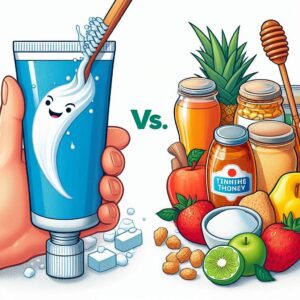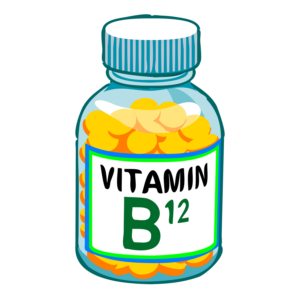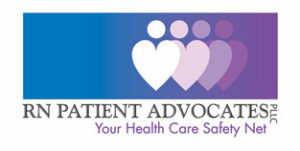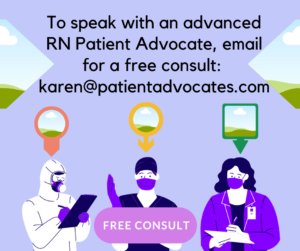Healthy Body Herald #5 – Extreme Heat Risk, Xylitol, PFAS, Vitamin B12 and more

Healthy Body Herald…knowledge is power #5
Table of Contents :
- How to Stay Safe in Extreme Heat
- Artificial sweetener linked to heart disease: Xylitol is a common low-calorie sweetener used in gums, candies, and oral care products.
- 10 medications older adults should avoid or use with caution. This information is from the American Geriatrics Society Health in Aging Foundation
- PFAS – more news about the health problems presented by these “forever chemicals” that are ever present in so many products – health issues such as reduced fertility, increasing cholesterol, and the potential for certain cancers
- Vitamin B12 – What is it and why do we need to understand its importance to our health? What does it do?
- There are many signs of nutritional deficiencies that can be corrected to help us all stay as healthy as possible. Here are some of the areas that may show problems: Eyes, Muscles and Joints, Teeth and Gums, Mouth, Skin, Hair, Nails, Emotional/Mental Status
- Do you or someone you know have osteoporosis? Are you taking a medication called Prolia? This is an important message for you: The FDA has issued a warning.
- There are 4 toxic elements that can be found in our foods that may potentially harm brains – especially in children: Lead, Arsenic, Mercury, Cadmium
 1. How to Stay Safe in Extreme Heat. Federal data showed that last summer’s heat waves contributed to a death toll of roughly 2,300 people.
1. How to Stay Safe in Extreme Heat. Federal data showed that last summer’s heat waves contributed to a death toll of roughly 2,300 people.
What’s more, a recently published CDC study showed that emergency department visits for heat-related illnesses surged in 2023 compared to the previous five years.
Here is how Yale Medicine describes heat illness:
- Heat rash: When sweat is trapped under the skin, red clusters of small, pimple-like blisters can form on such areas as the chest, elbow creases, neck, or groin, creating a stinging or prickly feeling in those areas.
- Heat cramps: Painful, involuntary muscle spasms can occur when the body gets too hot.
- Heat exhaustion: A more severe form of heat illness, this is the body’s response to a loss of water and salt, usually through sweating. It’s characterized by heavy sweating; cold, pale, and clammy skin; a fast and weak pulse; nausea; and dizziness, among other symptoms. If it’s not treated, heat exhaustion can lead to heat stroke.
- Heat stroke: This life-threatening illness occurs when body temperature rises to about 104 degrees, and the body loses its ability to adequately cool itself down through sweating, explains Dr. Della-Giustina. Other symptoms include confusion (an altered mental status and jumbled speech); hot, dry skin; vomiting; profuse sweating; seizures; and loss of consciousness. Heat stroke can be fatal if it’s not treated right away.
Can this be treated or avoided? Yes. Yes it can. Learn more at the following article:
https://www.yalemedicine.org/news/how-to-stay-safe-in-the-extreme-heat
 2. Xylitol is a common low-calorie sweetener used in gums, candies, and oral care products.
2. Xylitol is a common low-calorie sweetener used in gums, candies, and oral care products.
New research links xylitol to increased risk of heart attack and stroke. News from the Cleveland Clinic:
“This is the second sugar alcohol that we’ve identified that at physiologic ranges, the levels that we’re seeing in the blood, is linked to heightened clotting risk, heightened risk for heart attack, stroke and frankly, death,” said Stanley Hazen, MD, PhD, physician scientist for Cleveland Clinic.
If it is in your toothpaste, that is not an issue, since you do not swallow it. It is best to avoid products with Xylitol in them, but if that is not possible, please make certain that it is in small amounts. The following article can explain this in more detail. https://newsroom.clevelandclinic.org/2024/06/11/artificial-sweetener-linked-to-increased-risk-for-cardiovascular-events-study-finds
 3. 10 medications older adults should avoid or use with caution. This information is from the American Geriatrics Society Health in Aging Foundation
3. 10 medications older adults should avoid or use with caution. This information is from the American Geriatrics Society Health in Aging Foundation
Use with caution: Regular, long-term use of NSAIDS like ibuprofen; aspirin; muscle relaxants;
Avoid: certain antidepressants, some over the counter medications; estrogen pills and patches; some antipsychotics. More detail on these medications below:
https://www.healthinaging.org/tools-and-tips/learn-more-ten-medications-older-adults-should-avoid-or-use-caution
4. Remember our discussions about PFAS, the forever chemicals (they are named that because they persist in the environment for many, many years) that are so prevalent in our society? They are found in nonstick cookware, fast-food wrappers and pizza boxes, and dental floss as well as water resistant clothing. Some of the health problems associated with these forever chemicals are: 
- Cancer – the International Agency for Research on Cancer states that there is strong evidence that it may be cancer causing, especially prostate, kidney and testicular cancers
- Decreased fertility or increased blood pressure in pregnant women
- Reduction in immune system response, including reduced vaccine response
- Interference with hormones
- Increased cholesterol levels
Well, now it is known that these chemicals – PFAS – are easily absorbed through the skin and into the bloodstream.
“New research “for the first time proves” toxic PFAS forever chemicals are absorbed through human skin, and at levels much higher than previously thought”.
Here is an interesting article with more information: https://www.theguardian.com/environment/article/2024/jun/30/pfas-absorbed-skin-study
 5. Vitamin B12 is so important to our health. How?
5. Vitamin B12 is so important to our health. How?
- Vitamin B12: Boosts your energy and mood
- Helps to produce healthy red blood cells
- Works to promote nerve and brain function – is an essential nutrient to develop brain and nerve cells
- Is a part of the production of DNA, the genetic material contained in all your cells.
- People who are on a vegan or strictly vegetarian diet may not get enough in their nutrition and should consider supplementation.
https://apple.news/Af15RIVIkQWOMN9Y5bEi_mQ
6. Nutritional deficiencies: There are many signs of nutritional deficiencies that can be corrected to help us all stay as healthy as possible. Here are some of the areas that may show problems: Eyes, Muscles and Joints, Teeth and Gums, Mouth, Skin, Hair, Nails, and Emotional/Mental Status along with suggestions for correcting the deficiencies.
The following article is an excellent resource identifying the problems that may occur in each area listed as well as how to correct those deficiencies. Very interesting. See what you think: https://drjockers.com/5-body-signs-nutritional-deficiencies/
 7. Prolia: Based on a completed FDA review of available information, FDA has concluded that the osteoporosis medicine Prolia (denosumab) increases the risk of severe hypocalcemia, very low blood calcium levels, in patients with advanced chronic kidney disease (CKD), particularly patients on dialysis.
7. Prolia: Based on a completed FDA review of available information, FDA has concluded that the osteoporosis medicine Prolia (denosumab) increases the risk of severe hypocalcemia, very low blood calcium levels, in patients with advanced chronic kidney disease (CKD), particularly patients on dialysis.
https://www.fda.gov/safety/medical-product-safety-information/prolia-denosumab-drug-safety-communication-fda-adds-boxed-warning-increased-risk-severe-hypocalcemia
8. There are 4 toxic elements that can be found in our foods that may potentially harm brains – especially in children. Hard to believe, but true. Learning about this can absolutely help you to avoid them. The toxins are: Lead, Mercury, Arsenic and Cadmium. Here is a good article explaining where they can be found:
https://www.cspinet.org/article/what-know-about-4-common-toxic-elements



Recent Comments